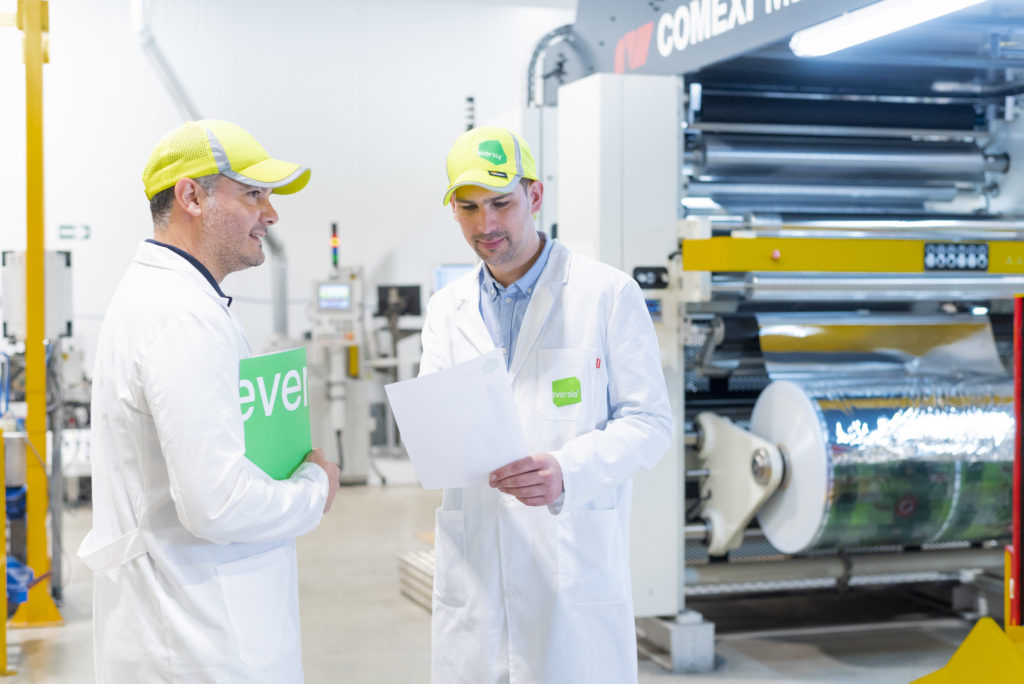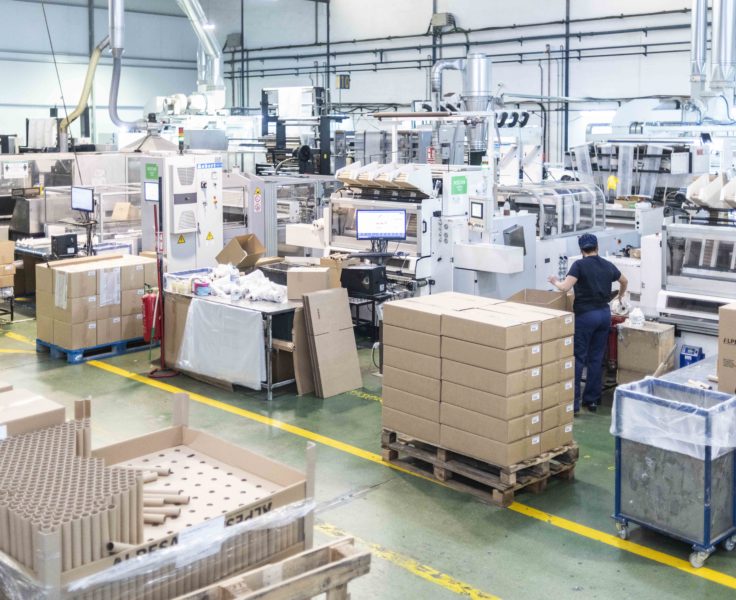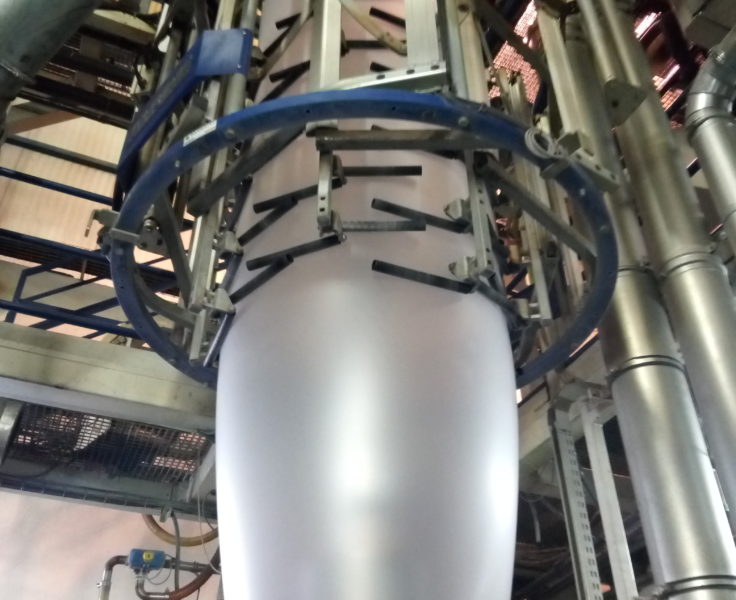In the continuous search for sustainable solutions, the packaging industry is at the forefront of innovation. In this context, at Eversia, as members of the European CIMPA project, we are involved in improving the recyclability of packaging by implementing one of the necessary steps in the studied innovations. We do this by introducing a new perspective through the use of watermarks on different packaging. This pioneering approach aims to enhance the reading and identification of the materials that make up the packaging, thus facilitating the recycling process.
The implementation of watermarks is not a novelty in itself, but its specific application in the field of packaging represents a crucial intermediate step towards optimizing recycling systems. These watermarks are readable through software specially designed for this purpose, allowing for a quick and precise identification of the materials present in the packaging.
The key to this approach lies in improving efficiency in the recycling process. By printing watermarks directly on the film, the work of recycling centres is facilitated, reducing sorting times and increasing the purity of recovered materials. This advancement not only benefits waste processors but also contributes to the creation of a flow of higher-quality recycled materials.

While this method is currently in a trial stage, we are confident that with the support of all CIMPA project members, a future is envisioned in which the packaging industry will adopt this practice on a widespread scale.
In conclusion, the introduction of watermarks in sustainable flexible packaging represents a significant step toward a more efficient recycling system. At Eversia, we have been making substantial investments in R&D for over a decade, keeping us at the forefront of innovation. This commitment to the future enables us to advocate for improvements in both packaging and advanced recyclability strategies, moving towards a more sustainable industry.

